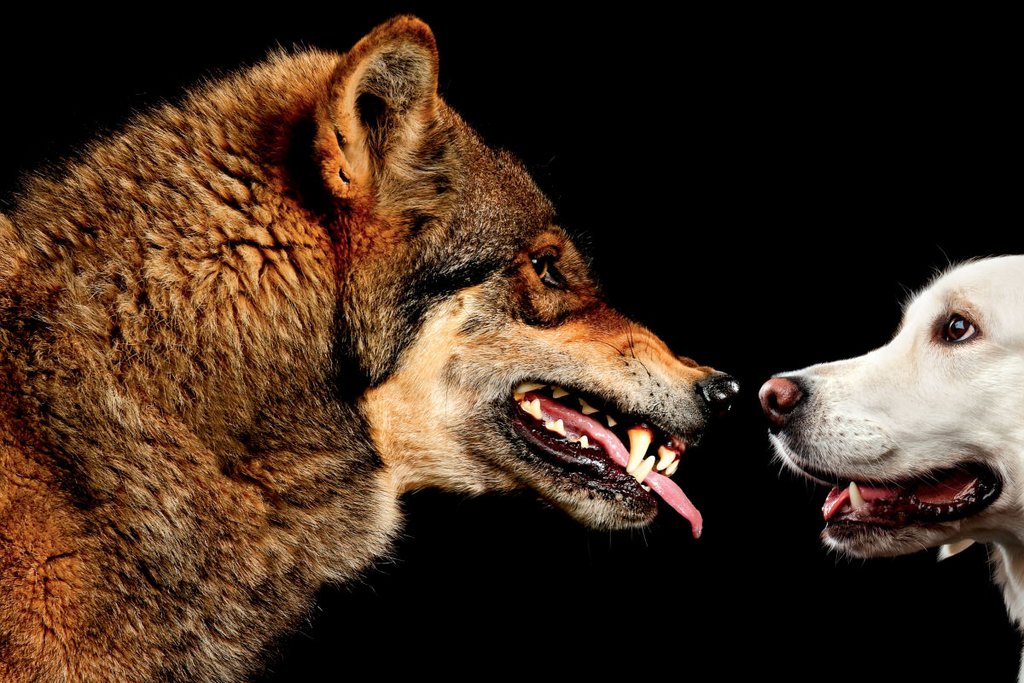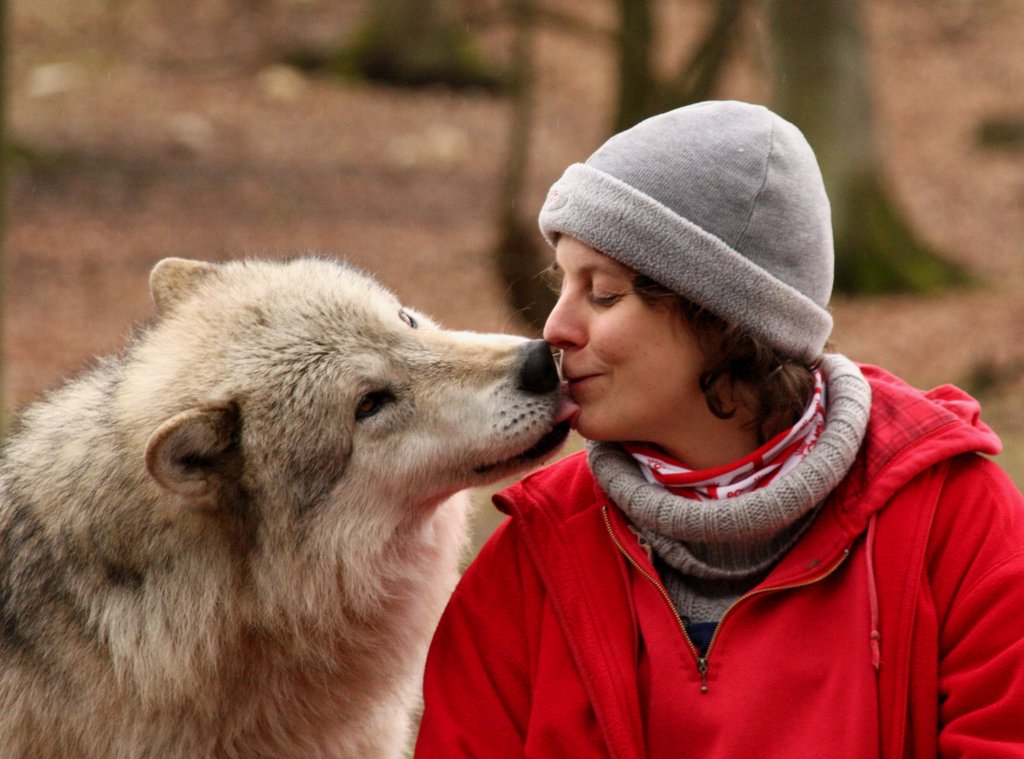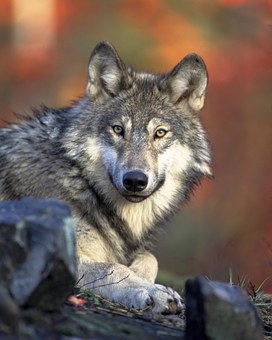How wolves act toward other living beings ...
2 posters
~ SILVER PACK KINGDOMS ~ :: THERIANS SPECIFICS - Sorted by kin types :: Canid :: Wolf Therians :: Education :: Social Behavior
Page 1 of 1
 How wolves act toward other living beings ...
How wolves act toward other living beings ...
____________________________________________________________________________
written by Silver Simone Black from silverpack.forum-nation.com
Do NOT share this article without my permission or there will be consequencs, thank you.
___________________________________________________________________________
HOW GREY WOLVES REACT TOWARD OTHER LIVING BEINGS

Note : Wolves generally avoid danger and contact with predators they don't need to deal with, as much as people and if not used to human presence, they will look for an exit at all cost so never corner nor approach a wild wolf that can't escape for some reason. Some wolves can also carry dangerous diseases like rabies and their bite can give you a nasty infection. Never pet a wolf unless you are 20034234 % sure it's used to be pet and do not bite people.
- Toward Wild animals : Both wild and domestic wolves will attack any prey that fit their energy level or hunger. For other predators, they will kill them on sight if they are from the canid family and comes on their territory since they are competition for food. Wolves will kill or beat up any stranger wolf inside their territory that is not from their pack and outsiders take a big risk to ask to join any outsider packs. Wild animals wolves tolerate are ravens and crows and even sometimes don't mind the presence of a bear ( if it shares of course ). Coyotes and foxes are killed on sight. Small preys are fast so the wolves only hunt them down if they need to eat desperately and will evaluate if its easy to catch or asking too much of their energy for what its worth. Deers and bigger preys are hunted down in packs but always trigger a hunting instinct.
- Toward domestic animals : Domestic wolves toward domestic animals: Territorial toward other canids , can be dogs, coyotes, wolf hybrids etc etc. Anything that is not part of their pack is likely to be attacked, hunted down or even killed. Yes, even your pet dogs.(wolf females are aggressive toward dog & wolf males ). Wolves are food driven so any prey animal will catch their attention, small or big and they might attack it by instinct. But family pets they were used to at a young age are a LOT less likely to be injured.
-Toward domestic animals: Will kill anything on sight if they need to eat, even your dog ( always keep a leash on to avoid that situation and don't leave your dog or cat outside ) but tend to wait for their pack ( if they are not loners ) to hunt down bigger preys. Domesticated wolfdogs with high wolf content have to be raised around other house pets as a pup to represent less danger to your other pets but there will always be a risk of aggression to consider, especially when they hit puberty. I'd suggest keeping a low content hybrid as a pet if its not the only animal round the house.They are destructive , they chew , bite and protect everything they want to own if left with no bones nor safe toys and even then. Female wolves are aggressive and possessive of their posessions toward male wolves and dogs.
- Toward humans : Wild Wolves avoid humans at all cost except if they need to hunt preys they can't find on their territory because of deforestation. Wild wolves only attack humans when they either have rabies, are desperate to eat or if they protect younglings or freshly killed preys they need for the pack's survival but wolf attacks are REALLY rare.- wolves like women more because their energy is less threatening then men's.
In captivity, they need to be fed by hand from a young age and be dealth with carefully and daily. They do not like to be caged but for some of them, it's all they know. They are social animals so they will need pack members or they might try to escape. Wolves are escape artists . They will also deny you if you leave for a period of time, away from the zoo or place where they live with you. They WILL present a danger of aggression so do not keep as pet or be cautious if kept in captivity in a zoo. Wolves need constant care and to be present daily and adults have to be fed from a distance. Wolf pups are cuddly, playful and nibbly but when they reach maturity, they can rebel and be unpredictable, especially around food and other creatures. wolves don’t like to be touched by strangers, they will snap gently to warn first but sometimes will bite straight at you if you ignore their body language to warn you from afar.- needs tremendous amount of time and care to get to trust people.- can't let be alone with children / pets or tied up without surveillance. Animals and children might make sudden moves or gestures that wolves might consider as a threat. Wolves generally take around a day to get used to someone and trust him enough to give them a chance at any relation. Wolves are reserved and wild and will only open to people / animals they can trust overtime and it takes a lot of your time and dedication. Some wolves in captivity, however, are REALLY used to humans and will seek their affection, especially toward women. Remember that wolves are scared or wary of strangers and will not approach without care. Wild wolves avoid any contact most of the time and flee when they can. Wolves DO NOT ENGAGE PEOPLE IN A FIGHT. Worst thing that may happen is that an idiot gets too close too quickly, doesn't understand the subtle energy warning and get bit. Sadly, wolves don't always warn and can bite if they feel like acting sneaky to defend themselves. Some people find them to be really unpredictable for that reason. Wolves really don’t like being touched by strangers and might warn you in different ways or simply snap at you briefly. Wolves will seek your attention but you can only pet them when they invite you to. Remember, Humans are strange alien giants to them. They do respect our intelligence and distance in most cases since they know we are also intelligent creatures capable of harming them but we must not abuse this act of respect by trying to enter their personal space against their will. Wolves don't like to be followed, they feel like being chased by another predator. Instead, keep your distance and you'll notice, curious animals they are, they might even start to follow you from afar. If they don't care enough, they'll just back to where they come from. Most Humans are considered a threat to wild wolves, especially ones who have never been in contact with them.
On the other side, Humans they consider trustworthy are considered family. When they like you, wolves rub against you to get pet and to put their scent on you andm ight even get jealous if anoher wolf gets too close and fight near you. If it happens, back off slowly but quikly enough not to get too close to the snapping jaws trying to dominate each other. They will get noisy and growly, showing teeth and '' eating '' each other's face until one gets away or submits. They show their belly and genitals when they trust you enough. Wolves don’t like sudden and clumsy threatening movements, approach them carefully without screaming or trying to pet right away. SLOW movements are encouraged. Don't stare in their eyes if you are not a close relative. They might take it as a challenge. Wolves come to people when they feel comfortable but don’t like to be approached against their own will. They will trot away and you might be chasing it instead or get snapped.Funny Fact : wolves hate hats and glasses, they might try to steal it from humans.


Silver Black- Owner

- Kin/Therio type : Naerubie ( celestial wolf guardian )
Age : 33
Job/hobbies : Comission Artist, Gamer, Singer, working at my own terms.
Join date : 2016-06-24
Your Kin self Information Sheet
Name of your kin self : : Silver Black
What is your kin type ? : Naerubie ( Interdimensional Angel Wolf being )
Describe it Physically : : winged wolf with avian features -

Rune likes this post
 Re: How wolves act toward other living beings ...
Re: How wolves act toward other living beings ...
I definitely see some of these traits with my own personality and behavior.

Rune- Trusted Administrator

- Kin/Therio type : Wolf Therian
Age : 33
Job/hobbies : In the furry fandom, activist
Join date : 2018-12-26
Your Kin self Information Sheet
Name of your kin self : : Rune
What is your kin type ? : Grey Wolf
Describe it Physically : : My avatar pic
Silver Black likes this post
 Similar topics
Similar topics» Dryads : Living with the trees
» Autotuned Wolves
» Why Wolves hate bears ...
» Why do wolves kill dogs ...?
» General Information about wolves
» Autotuned Wolves
» Why Wolves hate bears ...
» Why do wolves kill dogs ...?
» General Information about wolves
~ SILVER PACK KINGDOMS ~ :: THERIANS SPECIFICS - Sorted by kin types :: Canid :: Wolf Therians :: Education :: Social Behavior
Page 1 of 1
Permissions in this forum:
You cannot reply to topics in this forum






